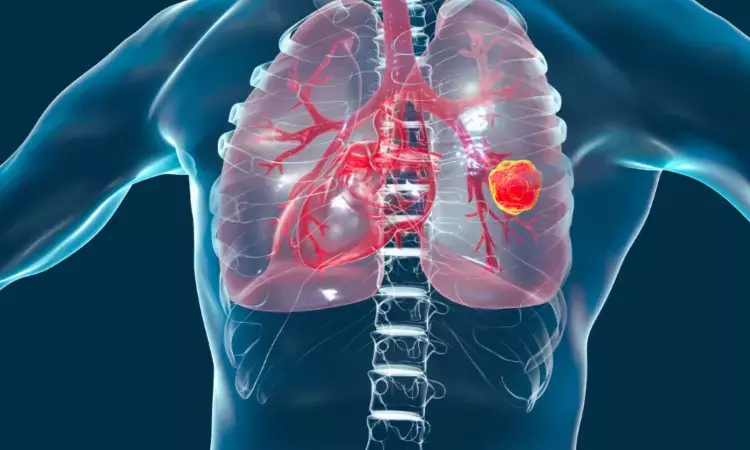- Home
- Medical news & Guidelines
- Anesthesiology
- Cardiology and CTVS
- Critical Care
- Dentistry
- Dermatology
- Diabetes and Endocrinology
- ENT
- Gastroenterology
- Medicine
- Nephrology
- Neurology
- Obstretics-Gynaecology
- Oncology
- Ophthalmology
- Orthopaedics
- Pediatrics-Neonatology
- Psychiatry
- Pulmonology
- Radiology
- Surgery
- Urology
- Laboratory Medicine
- Diet
- Nursing
- Paramedical
- Physiotherapy
- Health news
- Fact Check
- Bone Health Fact Check
- Brain Health Fact Check
- Cancer Related Fact Check
- Child Care Fact Check
- Dental and oral health fact check
- Diabetes and metabolic health fact check
- Diet and Nutrition Fact Check
- Eye and ENT Care Fact Check
- Fitness fact check
- Gut health fact check
- Heart health fact check
- Kidney health fact check
- Medical education fact check
- Men's health fact check
- Respiratory fact check
- Skin and hair care fact check
- Vaccine and Immunization fact check
- Women's health fact check
- AYUSH
- State News
- Andaman and Nicobar Islands
- Andhra Pradesh
- Arunachal Pradesh
- Assam
- Bihar
- Chandigarh
- Chattisgarh
- Dadra and Nagar Haveli
- Daman and Diu
- Delhi
- Goa
- Gujarat
- Haryana
- Himachal Pradesh
- Jammu & Kashmir
- Jharkhand
- Karnataka
- Kerala
- Ladakh
- Lakshadweep
- Madhya Pradesh
- Maharashtra
- Manipur
- Meghalaya
- Mizoram
- Nagaland
- Odisha
- Puducherry
- Punjab
- Rajasthan
- Sikkim
- Tamil Nadu
- Telangana
- Tripura
- Uttar Pradesh
- Uttrakhand
- West Bengal
- Medical Education
- Industry
Video assisted thoracoscopy surgery reduces mortality by 21 percent compared to lobectomy: Study

Patients who underwent video-assisted thoracoscopic surgery (VATS) compared to open lobectomy had a significantly improved overall survival rate, according to a meta-analysis presented at the International Association for the Study of Lung Cancer (IASLC) 2025 World Conference on Lung Cancer (WCLC).
Video-assisted thoracoscopic surgery (VATS) is currently the most common approach to perform pulmonary lobectomy in early-stage lung cancer. Advantages include reduced pain, fewer complications, faster recovery and improved quality-of-life. The adoption of VATS lobectomy is based on proven non-oncological benefits.
According to Dr. Jacie Jiaqi Law, Royal Brompton Hospital, United Kingdom, none of the three largest contemporary randomized trials completed have been powered to detect a difference in overall or disease-free survival. Several meta-analyses of predominantly non-randomized studies have suggested a VATS approach leads to improved patient survival compared to thoracotomy, however findings are limited due to selection bias and confounding, Dr. Law reported.
To answer this important question, Dr. Law and fellow researchers sought to identify randomized trials comparing VATS and open lobectomy in early-stage lung cancer and obtain individual patient data from these trials to conduct a meta-analysis.
Of the 556 potential studies identified, only three were randomised trials that met the eligibility criteria: Bendixen et al. from Denmark (NCT01278888), Long et al. from China (NCT01102517) and Lim et al. from the United Kingdom (NCT03521375). Data on 1185 patients (586 randomized to VATS and 599 randomized to open lobectomy) was provided from the three trials.
The primary analysis indicated significantly improved overall survival for patients randomized to VATS compared to open lobectomy, pooled hazard ratio (HR) 0.79 (95% confidence interval (CI) 0.65-0.96), representing a 21% reduction in the risk of death in the VATS lobectomy group. There was no difference in disease-free survival, pooled HR 0.91 (95% CI 0.75-1.12).
“For the first time, we provide evidence that a simple change in surgical access to VATS reduces the overall risk of death by 21% without any compromise to disease-free survival,” Dr. Law reported. “These results underscore the importance of prioritizing VATS when technically feasible as the access of choice for surgical resection of early-stage non-small cell lung cancer.”
Dr Kamal Kant Kohli-MBBS, DTCD- a chest specialist with more than 30 years of practice and a flair for writing clinical articles, Dr Kamal Kant Kohli joined Medical Dialogues as a Chief Editor of Medical News. Besides writing articles, as an editor, he proofreads and verifies all the medical content published on Medical Dialogues including those coming from journals, studies,medical conferences,guidelines etc. Email: drkohli@medicaldialogues.in. Contact no. 011-43720751


